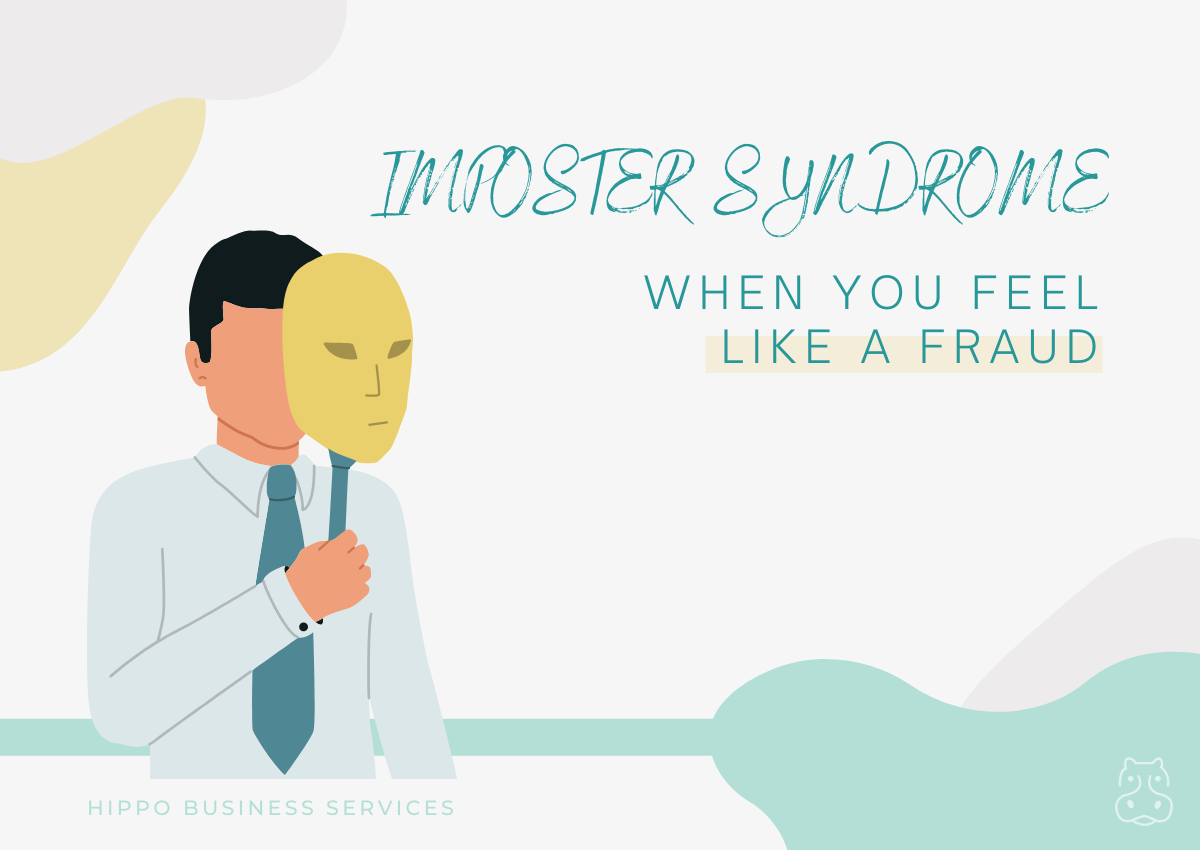Have you ever walked into a meeting and thought you didn’t belong there? As if the other people were better than you, and you had somehow managed to deceive everyone into thinking you were at their level? This feeling is commonly associated with Imposter Syndrome.
Imposter Syndrome – loosely defined as doubting your abilities and feeling like a fraud – is not a diagnosis or a medical problem. It is a pattern of thinking that leads to self-doubt and missed opportunities. Many of us hold onto the false belief that we aren’t as capable or bright as others think we are, and no matter how much evidence there is available to us of our successes, we believe we have fooled anyone who thinks otherwise.
Originally termed “Imposter Phenomenon” in 1978, Imposter Syndrome is “the feeling that everyone else knows exactly what they’re doing, but you feel lost,” explains psychologist Susan Albers, PsyD. You have a “fear that the people around you are going to figure out you don’t know what you’re doing” and “expose you as a fraud.” A person with Imposter Syndrome may experience; feelings of inadequacy, a fear of being discovered, a sense of being a fraud, and difficulty internalising success.
Interestingly enough, those who are deemed extremely successful, often fall victim to the unwarranted insecurities that come with Imposter Syndrome more than any other psychographic. Business owners or entrepreneurs can also be hit with Imposter Syndrome, and the adverse impact, both powerful and subtle, can create uncertainty surrounding their own accomplishments and prevent them from taking necessary risks for their business. Problem Solvers hosted by Jason Feifer, is a podcast worth listening to that dives right into Imposter Syndrome and the idea that everyone, at times, feels like they’re making things up as they go.
Left unchecked, Imposter Syndrome can derail an entire business. So, if you have a nagging fear of being “exposed” for not being as smart, or deserving, or experienced as others think, here are six steps to help you escape the viscous cycle of self-doubt:
Your Value
Stop internalising your worth and success. You didn’t just get lucky! If you have a tendency to attribute your success to external sources, begin by taking more ownership of the internal attributes you drew on. Remind yourself that you know more and have achieved more than you think you have and that you are capable of learning. Just as we must all take responsibility for our failures; you must also take responsibility for your successes!
Recognise Fraudulent Feelings
The word “imposter” brings a tinge of criminal fraudulence, to the feeling of simply being unsure or anxious about joining a new team or learning a new skill. The good news is, for the most part, these feelings are normal. However, with thoughts such as “I don’t deserve this,” or “it was just luck,” pause and note that you may be having Imposter Syndrome thoughts. Recognising that you are having negative, self-doubtful thoughts can help you to stop them. Headspace has some very helpful advice worth reading on how to stop negative self-talk.
Self-Improvement
Choose self-improvement over self-comparison. Sometimes, a good chat with someone who knows you and supports you is all you need to realise that your imposter feelings are irrational. A professional such as a therapist or psychologist can also help you to recognise and navigate past your own feelings associated with Imposter Syndrome. Just by voicing your concerns to a professional, you can remove the isolation that fuels insecurity.
Work in Progress
Imposter Syndrome can instill the fear in your mind that your colleagues, supervisors or clients expect more from you than you can manage. These crushing expectations may make you feel like you are unable to deliver, causing you to hold back and avoid seeking higher achievements. The fear of not succeeding can be debilitating but one failure cannot paint the picture of your entire life! Read more about staying optimistic at work and the Hippo Mindset here.
Avoid Comparison
Refrain from defining yourself based on how you think others are performing. Instead, focus on measuring your own achievements. It’s easy to fall into the trap of comparing your life against others’, when what you should be doing, is reminding yourself of your own successes. In moments where you feel less-than, it can be helpful to have a tangible reminder of your own accomplishments. Whether that is a saved congratulatory email or a list of achievements that you’re proud of, keep it somewhere you can see it on a day where it feels like nothing is going right.
Learn from your mistakes
Criticism is good! Use every piece of feedback as an opportunity to improve and strengthen yourself. In the rare chance that the self-doubts your experiencing due to Imposter Syndrome are accurate, being able to recognize your weaknesses and develop them is both a privilege and critical to your own success. Remember, no one is perfect!
The bottom line is, no one is immune to the doubts that feed Imposter Syndrome (unless you’re a serial narcissist). Consider hiring a virtual assistant to reduce the stress that comes with Imposter Syndrome and take time-consuming tasks off your plate. Reducing your stress and increasing your free time will help you in maintaining a positive mindset – increasing your happiness influences – leaving you with extra time to work on more important areas of your business, with an added bonus of avoiding negative effects directly tied to how overworking impacts your mental health. This will require some money, but a virtual assistant can help you to maximize your profit-producing opportunities. Don’t be afraid to invest in your business if you’re serious about growth! Read more about how a virtual assistant could benefit you here.
Perfection is impossible, failing to achieve 100% of your business goals 100% of the time, doesn’t make you an imposter. The same goes for the other way around, you aren’t undeserving of your own success. Success is your own; don’t let imposter syndrome make you feel like a fraud and derail your business along with it.








